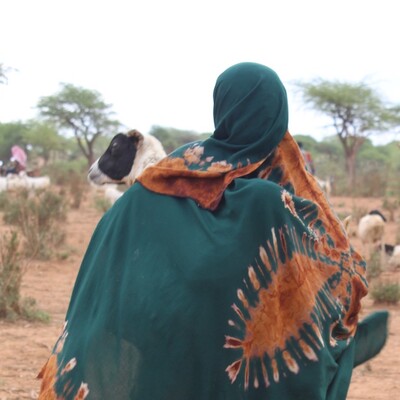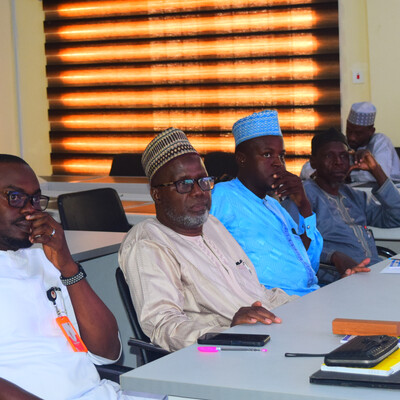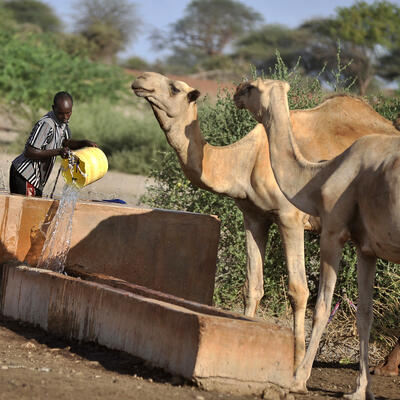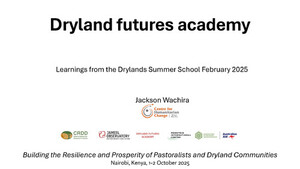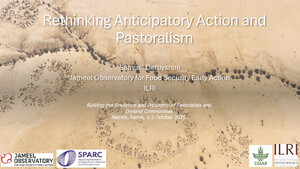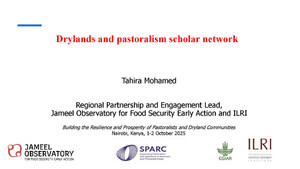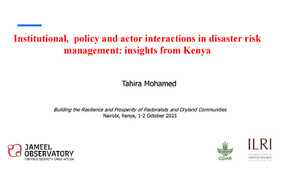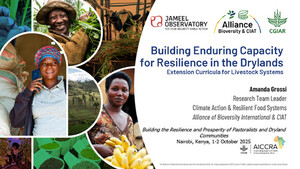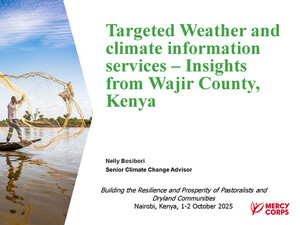
Four-year initiative launched to improve milk quality, safety and marketing in central and western Kenya
A new four-year project to improve milk quality, safety and marketing in Kenya has been launched by the Kenya Dairy Board (KDB), the International Livestock Research Institute (ILRI) and stakeholders in the dairy sector.
The More Milk for Lives and Livelihoods (MoreMilk 2) initiative was inaugurated at the ILRI campus in Nairobi on 27 January 2025.
Funded by the Gates Foundation and the UK Foreign, Commonwealth and Development Office, MoreMilk 2 will enhance dairy farmers capacity to produce high-quality milk, improve milk handling and safety, and access to safe milk markets in the central and western Kenya counties of Nakuru, Nyandarua and Uasin Gishu. The project builds on the success of the MoreMilk 1 project, which generated research on how informal milk markets can improve nutrition and health in peri-urban settings.
Kenya’s informal dairy sector is the backbone of milk supply for millions, providing affordable and nutritious dairy products while sustaining livelihoods across the dairy value chain. But the sector faces significant challenges, including inconsistent quality standards, food safety concerns and regulatory bottlenecks, which limit its economic potential. The MoreMilk 2 initiative is designed to mitigate these challenges through targeted interventions in Nakuru, Nyandarua and Uasin Gishu, three of Kenya’s top milk producing counties.
The four-year initiative is expected to:
- Improve the safety of unpackaged milk sold by small businesses in Kenya by empowering dairy vendors with business skills, safe milk handling practices and regulatory knowledge to help them scale their businesses.
- Promote gender inclusion by offering targeted support to enhance women’s participation and economic opportunities.
- Strengthen collaboration between dairy farmers, vendors, regulators and policy makers to create a more structured and resilient dairy sector.
Takeaways from the launch
- Commitment from key stakeholders: The presence of key leaders––including KDB managing director, Margaret Kibogy, Nakuru County director of livestock, Virginia Ngunjiri, Nyandarua livestock department chief officer, John Kariuki, chief officer of agriculture in Nyandarua, Joshua Chepchieng, principal secretary representative for livestock development, Ronald Okindo, directorate of veterinary service representative, Leonard Bor, CEC agriculture Nakuru County and county director veterinary Nyandarua County, Edward Kanyari ––reflected the shared commitment to strengthening the dairy sector. In her speech, Kibogy emphasized the importance of multi-stakeholder collaboration, urging policymakers, vendors and consumers to actively engage in the initiative.
- A vision for economic growth: ILRI director general, Appolinaire Djikeng, highlighted the broader economic potential of the dairy sector. He stressed the importance of value addition, product diversification and environmentally sustainable practices to enhance its growth: ‘We should all be ambassadors of a thriving dairy sector.’
Impact on vendors, farmers and consumers: MoreMiLK 2 is designed to improve livelihoods, empower small-scale vendors and ensure that Kenyan households have access to high-quality milk. ‘The initiative aims to create a more inclusive and efficient dairy sector by addressing market access and milk safety,’ remarked Silvia Alonso, the Project Principle Investigator, ILRI.
Voices from the field
‘MoreMilk 2 offers more than skills training. From our experience with MoreMilk 1, MoreMilk 2 will empower vendors to think differently about their businesses. This initiative will improve milk safety and quality and equip vendors with the knowledge and confidence to run more efficient and profitable enterprises,’ said Elizabeth Wamere, a vendor business school trainer.
‘The training I received through MoreMilk 1 gave me the confidence to run my business effectively. It equipped me with essential skills in milk testing, safe handling practices and customer care. As a result, I have built greater trust with my customers, leading to increased sales,' said Esther Njoroge, a vendor business school graduate.





